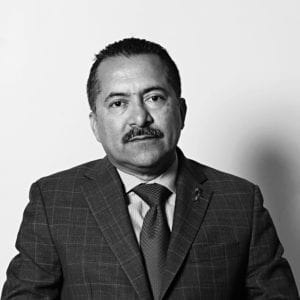A Catholic, Latino Perspective on End-of-Life Suffering
Feb 13, 2018 medical aid in dying New York New York Medical Aid in Dying Act

This is a translated story. The original piece ran for El Diario.
As leader of the Latino Commission on AIDS and founder of the Hispanic Health Network I see the horrors of too many Latino New Yorkers facing slow, painful deaths.
Their pain is a reminder of my journey in 2005 – when I was diagnosed with malignant colon cancer. Catheters, needles and machines had no mercy on my body. They tore my soul apart. Thankfully, our Lord, Monsignor Oscar Romero and my saints gave me a second chance.
But I am deeply concerned about all Latinos facing terminal illness and the 17 percent of Latinos living with HIV/AIDS who will likely suffer at the end of life.
I strongly believe New Yorkers living with HIV/AIDS should have the option when the time comes – to make the end-of-life care decisions that are right for them and their loved ones – in the final stages of a terminal illness.
Fortunately, the New York legislature is considering a medical aid-in-dying law that would honor the fundamental human right of terminally-ill individuals to decide how and when we die, when death is inevitable.
Medical aid in Dying
These compassionate laws give mentally capable, terminally ill adults with six months or less to live the option to get prescription medication to die peacefully in their sleep when no other treatment can provide relief from unbearable suffering.
Medical aid in dying is authorized in the District of Columbia and six states (California, Colorado, Montana, Oregon, Vermont and Washington), representing 18 percent of our nation’s population, with 40 years of combined experience of safely using this option.
While I am blessed today to call myself cancer free, I would want this compassionate law if my cancer ever came back.
I understand this end-of-life care option may not be for everyone. Many terminally ill people have different opinions about what decisions are right for them in the final stages of a terminal illness. But as a Catholic who respects other people’s faiths, I believe it is not for me to judge someone else. Until one walks in another person’s shoes, it’s not for anyone to stand in the way of this compassionate option being available for someone else.
Miguel
Both national and state polls show strong support for medical aid in dying across the ethnic, political and religious spectrum, including 69 percent of Latinos/Hispanics and 57 percent of doctors nationwide. A growing number of national and state medical organizations have endorsed or adopted a neutral position on medical aid in dying as an end-of-life care option for mentally capable, terminally ill adults.
It broke my heart to recently learn about the death in 2016 of Miguel Carrasquillo, a terminally ill Puerto Rican native, who recorded YouTube videos of himself advocating for this option. The 35-year-old former chef who also had lived in New York and Chicago was dying of brain cancer when he recorded his YouTube videos in both English and in Spanish to urge fellow Latinos to support medical aid-in-dying legislation in New York, Illinois and Puerto Rico. Unfortunately, Miguel died in June 2016 without the option to end his agonizing pain because Puerto Rico had not authorized it.
I never met Miguel. But I want to honor his memory by stepping forward to support his desire for anyone facing a terminal illness to have options in their lives. That’s why I am formally endorsing the New York Medical Aid in Dying Act that would allow all terminally ill New Yorkers to peacefully end needless intolerable suffering at life’s end.
The harsh reality is that no matter how hard we try, we cannot escape the cycle of life and death. My belief is that if the time comes when we can’t bear the suffering that afflicted Miguel and so many of my friends who died of cancer, or AIDS, a merciful God will understand that we all should have the option to die peacefully.
Guillermo Chacón is the president of the Latino Commission on AIDS and founder of the Hispanic Health Network.


